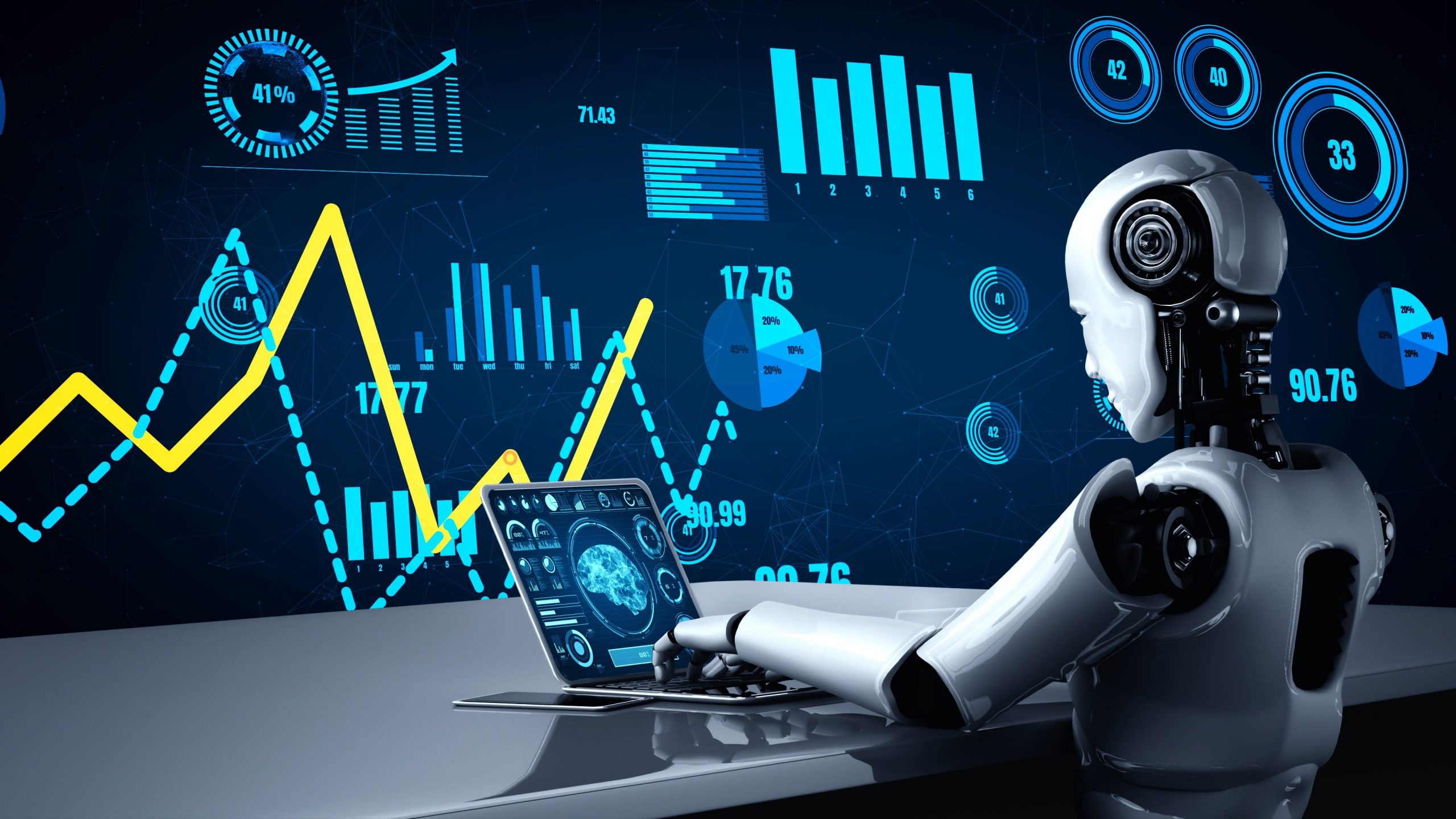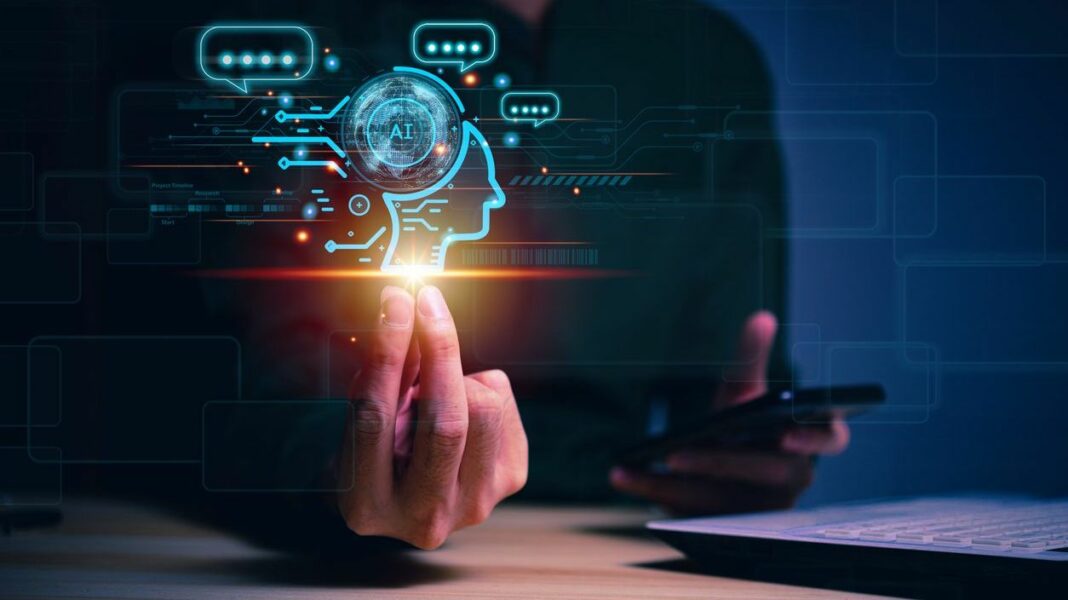The Transformative Power of Artificial Intelligence on Modern Technology
Artificial intelligence (AI) has rapidly evolved from a futuristic concept to a crucial element in various sectors of technology. Its integration into different industries is reshaping the landscape, driving innovation, and redefining efficiency and productivity. This article explores the significant impact of AI on technology, focusing on healthcare, finance, transportation, and everyday life.
Healthcare: Revolutionizing Patient Care and Medical Research
AI’s influence on healthcare is profound, with applications ranging from diagnostics to treatment and patient care. One of the most notable advancements is in medical imaging. AI algorithms can analyze complex medical images with remarkable accuracy, often surpassing human capabilities. For instance, AI-powered systems can detect anomalies in X-rays, MRIs, and CT scans, leading to early diagnosis and better patient outcomes.
Moreover, AI-driven predictive analytics are revolutionizing patient care. By analyzing vast amounts of patient data, AI can predict potential health issues and recommend personalized treatment plans. This proactive approach not only improves patient outcomes but also reduces healthcare costs by preventing serious illnesses.
AI is also accelerating medical research. Machine learning algorithms can sift through enormous datasets to identify patterns and correlations that might be missed by human researchers. This capability is particularly valuable in drug discovery, where AI can predict the efficacy of new drugs and identify potential side effects, significantly speeding up the development process.
Finance: Enhancing Efficiency and Security

The finance industry is another sector experiencing significant transformation due to AI. One of the most visible impacts is in trading and investment. AI-powered algorithms can analyze market trends and make trading decisions in real-time, often with greater accuracy and speed than human traders. This has led to the rise of algorithmic trading, where AI systems execute trades at optimal times to maximize profits.
AI is also improving customer service in the finance sector. Chatbots and virtual assistants are now common, handling a wide range of customer inquiries quickly and efficiently. These AI systems can provide personalized financial advice, helping customers make informed decisions about their investments and savings.
Security is a critical concern in finance, and AI is playing a crucial role in enhancing it. AI systems can detect fraudulent activities by analyzing transaction patterns and identifying anomalies. This proactive approach helps financial institutions prevent fraud and protect their customers’ assets.
Transportation: Driving the Future
The transportation sector is undergoing a radical transformation, thanks to AI. Autonomous vehicles are at the forefront of this revolution. Self-driving cars, powered by AI, are being developed and tested by companies like Tesla, Waymo, and Uber. These vehicles use advanced AI algorithms to navigate roads, recognize obstacles, and make real-time decisions, promising to reduce accidents caused by human error and improve overall traffic flow.
AI is also enhancing public transportation systems. Smart traffic management systems use AI to analyze traffic patterns and optimize traffic signals, reducing congestion and improving travel times. Additionally, AI-powered predictive maintenance systems can monitor the condition of vehicles and infrastructure, identifying potential issues before they lead to breakdowns or accidents.
In logistics, AI is streamlining operations by optimizing routes and improving supply chain management. AI algorithms can analyze various factors, such as weather conditions, traffic, and delivery schedules, to determine the most efficient routes for delivery trucks. This not only reduces fuel consumption and operational costs but also ensures timely deliveries.
Everyday Life: Making Smart Homes and Personal Assistants

AI is increasingly becoming a part of our daily lives, transforming how we interact with technology. Smart homes, powered by AI, offer convenience, security, and energy efficiency. AI-driven devices like smart thermostats, lighting systems, and security cameras can learn our preferences and habits, adjusting settings automatically to provide optimal comfort and security. For instance, a smart thermostat can learn your schedule and adjust the temperature accordingly, saving energy and reducing utility bills.
Personal assistants, such as Amazon’s Alexa, Apple’s Siri, and Google Assistant, are becoming indispensable in many households. These AI-powered assistants can perform a wide range of tasks, from setting reminders and answering questions to controlling smart home devices and making online purchases. Their ability to understand and process natural language makes them incredibly user-friendly and efficient.
Artificial Intelligence is also enhancing entertainment experiences. Streaming services like Netflix and Spotify use AI algorithms to analyze user preferences and recommend personalized content. This not only enhances user satisfaction but also keeps them engaged for longer periods.
Challenges and Ethical Considerations
While AI offers numerous benefits, it also raises significant challenges and ethical considerations. One major concern is the potential loss of jobs due to automation. As AI systems become more capable, there is a risk that many jobs, particularly those involving repetitive tasks, could be replaced by machines. This could lead to significant economic and social disruptions.
Another critical issue is data privacy. AI systems rely on vast amounts of data to function effectively. Ensuring that this data is collected, stored, and used in a way that respects privacy and complies with regulations is paramount. Additionally, there is the challenge of bias in AI algorithms. If the data used to train AI systems is biased, the resulting decisions can also be biased, leading to unfair outcomes.
Conclusion
Artificial intelligence is undeniably transforming various sectors of technology, driving innovation and improving efficiency. Its impact on healthcare, finance, transportation, and everyday life is profound, offering numerous benefits. However, as we continue to integrate AI into our lives, it is crucial to address the challenges and ethical considerations it presents. By doing so, we can ensure that AI serves as a force for good, enhancing our lives and shaping a better future.
